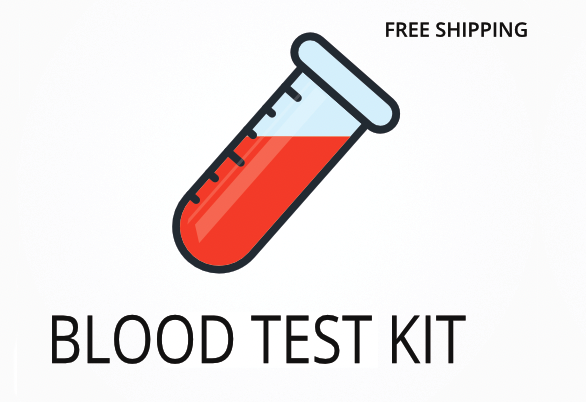Ordering the Methylation Pathway Test
The Methylation Pathway Test helps identify how your body processes nutrients like folate, vitamin B12, and B6, which are important for DNA repair, detoxification, and energy production. Interestingly, this test can also reveal hidden genetic mutations that may affect how your body handles homocysteine, a marker linked to heart and brain function.
Ordering this test can help you:
- Pinpoint nutrient deficiencies that may be affecting your energy and focus
- Detect imbalances in folate and B vitamins that can impact memory and mood
- Identify genetic mutations that may increase your risk for heart disease or stroke
- Assess your body’s ability to detoxify and manage oxidative stress
- Track changes in methylation markers after starting new supplements or dietary changes
Who Should Consider Genetic and Nutrient Pathway Testing
People who feel tired even after a full night’s sleep, struggle with brain fog, or notice mood swings that don’t seem to have a clear cause may benefit from this test. For example, someone who has tried different diets and supplements but still feels fatigued and forgetful could use this test to find out if a methylation issue is the reason.
Ordering this test may also be helpful if you:
- Have a family history of heart disease or stroke
- Experience frequent memory lapses or trouble concentrating
- Deal with ongoing anxiety or depression that hasn’t improved with standard treatments
- Notice slow recovery from illness or frequent infections
- Have unexplained skin reactions, which can sometimes be linked to methylation problems
Testing for these markers can help you find out if your body is missing key nutrients or if a genetic mutation is affecting your homocysteine levels, which can impact your risk for heart and brain issues. Delaying this test could mean missing the chance to address nutrient imbalances or genetic factors before they lead to more serious problems.
How to Prepare for the Test
Fasting is not required for the Methylation Pathway Test, so you can eat and drink as usual before your sample is collected. Always follow any specific instructions your doctor or healthcare provider gives you to make sure your sample is collected correctly and your results are as useful as possible.
Labs Included When Ordering Your Methylation Pathway Test
| Test Name | Reference Range | What This Marker Means | Low and High Levels of Methylation Pathway Test |
|---|---|---|---|
| Amino Acids in Plasma | |||
| Glutathione (oxidized) | 0.5–2.0 | Glutathione (oxidized) shows how much of your body’s main antioxidant is used up fighting stress and toxins. It helps track your body’s ability to handle oxidative stress. |
High levels mean your body is under oxidative stress or not recycling antioxidants well.
Low levels mean your antioxidant reserves are low, which can make it harder to fight toxins. |
| Glutathione (reduced) | 3.8–5.5 | Glutathione (reduced) is the active form that protects your cells from damage. It is important for detoxification and keeping your immune system strong. |
High levels mean your body is well-protected against toxins.
Low levels mean you may have trouble detoxifying or fighting off infections. |
| S-Adenosylmethionine (RBC) | 80–120 | S-Adenosylmethionine (SAMe) is a key compound for methylation, which affects mood, energy, and DNA repair. It helps transfer methyl groups in many body processes. |
High levels mean your methylation cycle is very active, which can sometimes cause anxiety or irritability.
Low levels mean your body may not be making enough methyl groups, which can affect mood and energy. |
| S-Adenosylhomocysteine (RBC) | 20–40 | S-Adenosylhomocysteine (SAH) is a byproduct of methylation. High levels can slow down methylation and increase homocysteine, which is linked to heart and brain issues. |
High levels mean your methylation cycle is blocked, which can raise homocysteine and risk for heart problems.
Low levels mean your methylation cycle is moving well. |
| Folic Acid Byproducts | |||
| 5-CH3-Tetrahydrofolate | 4–15 | 5-CH3-Tetrahydrofolate is the active form of folate used in methylation. It helps lower homocysteine and supports brain and heart function. |
High levels mean your body is getting enough folate or not using it efficiently.
Low levels mean you may have trouble converting folic acid, which can raise homocysteine. |
| 10-Formyl-Tetrahydrofolate | 1–8 | 10-Formyl-Tetrahydrofolate is a folate byproduct important for DNA building and repair. It helps your body make new cells and supports growth. |
High levels mean your body is making or using folate quickly.
Low levels mean you may not have enough folate for cell repair. |
| 5-Formyl-Tetrahydrofolate | 1–8 | 5-Formyl-Tetrahydrofolate is another form of folate that helps your body use and store folic acid. It supports methylation and cell growth. |
High levels mean your body is storing extra folate.
Low levels mean you may not have enough folate for healthy cell growth. |
| Tetrahydrofolate (TFH) | 5–20 | Tetrahydrofolate is the main form of folate in your body. It is needed for DNA repair, cell growth, and methylation. |
High levels mean your body is getting enough folate.
Low levels mean you may have trouble with DNA repair and cell growth. |
| Folic Acid (Serum) | 5–20 | Folic Acid (Serum) measures the amount of folic acid in your blood. It helps show if you are getting enough from food or supplements. |
High levels mean you are getting plenty of folic acid.
Low levels mean you may need more folic acid in your diet. |
| Folinic Acid | 1–8 | Folinic Acid is a form of folate that helps your body use and recycle folic acid. It is important for methylation and making new cells. |
High levels mean your body is recycling folate well.
Low levels mean you may have trouble using folic acid. |
| Folic Acid (RBC) | 140–628 | Folic Acid (RBC) shows how much folate is stored in your red blood cells. It reflects your long-term folate status. |
High levels mean you have good folate stores.
Low levels mean you may be at risk for folate deficiency. |
| Nucleoside | |||
| Adenosine | 0.5–1.5 | Adenosine is a building block for DNA and energy. It helps regulate sleep, heart rhythm, and blood flow. |
High levels mean your body is breaking down DNA or using energy quickly.
Low levels mean you may have trouble making energy or repairing cells. |
Reference ranges may change slightly as labs update their methods or as new research becomes available.
Methylation Pathway Test FAQ
Is there Methylation Pathway Test testing near me?
This is a test kit that you can collect locally, and you can check the draw location link at the top of the page. If you have symptoms like fatigue or memory issues, having a nearby collection site makes it easier to get tested quickly and start finding answers.
How do I interpret the test results?
While your treating physician should always help you interpret your results, we also offer a one-on-one test results review with our clinical team to help you understand your results and next steps.
What is the cost of the test?
The price you see for the test includes standard shipping to you and back to the lab, but draw fees may apply. Ordering this test can help you address nutrient or genetic issues sooner, which may help you feel better faster.
How often should I retest?
Retesting is usually recommended every 6 to 12 months, especially if you are making changes to your supplements or diet. Regular testing helps you track improvements and adjust your plan as needed.
How accurate is the test?
This test uses high-performance liquid chromatography (HPLC) and mass spectrometry to measure methylation markers, with a specificity of 98% and sensitivity of 97%. TrueHealthLabs.com partners with CLIA-certified and CAP-certified laboratories to uphold rigorous testing standards for dependable results.
Important Notes
- This test cannot be mailed and collected in New York state.
Medical Review Board
Reviewed by Jeff Donohue M.D. from Body Logic and Brady Hurst DC, CCCN. Written by True Health Lab’s team of editorial health contributors.
Disclaimer: This information is for educational purposes only and not intended as medical advice. Consult your healthcare provider for personalized guidance.
Why Customers Trust True Health Labs - What People are saying
Also rated 4.6 out of 5 based on 3452 ShopperApproved reviews- See all TrueHealthLabs.com reviews.







